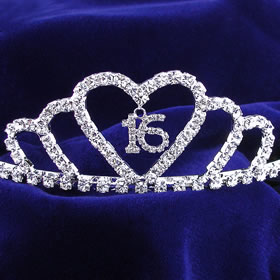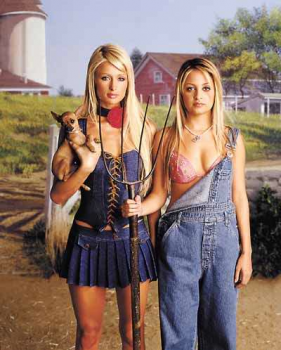Life’s So Good When You Have a Credit Card

Established youth-oriented television networks like MTV face a
difficult challenge: as they become more firmly entrenched, they risk
becoming irrelevant to younger generations. So far, MTV seems immune to
this fate, possibly because the network has changed its programming
strategies (from music videos to reality shows), but this might owe
something about television's media specificity and its flexibility.
MTV's own promotional efforts also belie a covert graying of its
audience. As boomers and, increasingly, the older members of Gen-X
refuse to relinquish youth, it follows that some of them continue to
watch MTV, partly because they grew up with it, and partly because they
still identify as young. MTV's own programming tacitly acknowledges
this share of older audiences, even if its publicity does not. Veterans
from the first season of The Real World have recently appeared on The Gauntlet: Real World/Road Rules Challenge despite being in their late 30s, and, in the case of season one's Norman, almost entirely grey-haired.
Discourses on youth, authority and age are not consistent across the
network's programming, however, suggesting different addresses and
sensibilities. Two recent shows are of particular note–the new reality
series, Tiara Girls (TG) and the returning My Super Sweet Sixteen (MSSS)–which present largely unattractive views of both parenting and youth. This is somewhat balanced by their status as representations of two extremes–the world of the spoiled and seemingly blue-collar rich and that of beauty pageants–but both shows are disturbing, both in terms of what they reveal (youthful greed, entitlement, parental overindulgence) and how this might be received.

Like many shows on MTV, TG and MSSS are effectively paired up, presenting related phenomena from slightly different perspectives1. As the current issue of Entertainment Weekly suggests, the parents on TG are more critical of their daughters, who generally fail in their quest (winning a small-time beauty pageant), while those on MSSS swamp their graceless children with high-end cars and lavish parties without requiring any kind of success or effort in return2. TG has more of a message: it suggests that even with money and hard work, individuals cannot always successfully control their fate. But its message is undercut by visuals that undeniably reveal girls who do not look like beauty queens. Both shows share this reliance on the camera as truth, asserting that everything is what it seems and appearance is all that matters. This is, paradoxically where matters become complicated, where irony is lost and where the shows offer a more disturbing window onto youth culture and its ideals.
In MSSS, the display of money and consumer goods is all important, hence the value of the party as spectacle and showcase for the girl3. Although something small invariably goes wrong and the girl has some kind of meltdown, she finally has “the best party ever” and the luxury car she covets. But this is not presented as a reward for her efforts, but instead displays her entitlement. Any refusal from a parent inevitably becomes the set up for some kind of surprise (a father tells his daughter that she can either have a luxury car or a big party, only to give her the car at the end) or is summarily overruled by the child (because “it's my party”).
As befits the ambivalence of an adolescent right of passage, most girls construct their party to stage themselves simultaneously as both adult sexual figures (examples include Cleopatra, belly dancers, rap stars, Victoria's Secret models, and Paris Hilton) and as childish icons, typically princesses. Few girls then have boyfriends and those who do are not interested in them–they are an accessory and not a vital one. Their revealing dresses and their self-presentation as desirable sexual woman is for themselves and other girls, constructing a fantasy of adulthood glamour that the party also represents in all its contradictory manifestations.
This body is also part of the girl's sense of entitlement: at least in her own mind, she is a princess, a model, a figure of desire and the subject of jealous and desiring gazes (from her entourage, her guests, those who try to crash the party and the viewers at home). Still, as in TG, the show often undercuts their delusions. Alex, a self declared “heiress in training” repeatedly exclaims that she was an ugly duckling who is about to become a swan, although the camera reveals little transformation. Another overweight girl models for her pre-birthday pictures and declares that she is as attractive as any model.
As Entertainment Weekly suggests, it is easy to be repulsed by the girls in both shows, particularly MSSS. Their greed and their parents' irresponsibility constitute an appalling spectacle. But, even then, the show is somewhat more ambivalent, suggesting that this may not matter in the climate of late capitalism and the excesses of contemporary youth culture. Instead, these parties and cars reveal the advantages these girls have in a culture of celebrity and entitlement that will likely get them further than a good education.

As part of a youth culture where image and entitlement are highly valued, these shows lack of formal self-awareness and ironic intervention can be troubling. They do not have the renowned MTV style–no odd cuts or jarring angles–but instead flow transparently, possibly reinforcing their protagonists' total investment in the spectacle of consumption, where image is all. But when seen in the context of reception, things are never so simple, and here I think, it is relevant that MTV's audience is not as homogeneous as the network might claim. Different generations and demographics have their own interpretations of these shows, opening up the possibility of some debate about the usually secretive codes and value of adolescence. Do these shows present these spoiled brats so viewers can mock them, particularly audiences who have no direct experience of contemporary parenting or contemporary adolescence? Or do these shows present sometimes unlikable teens that embody what their peers and their culture really endorse and covet: rampant consumerism, unearned celebrity and unlimited entitlement? Or do they help other teens justify what seem like small demands (like the limo my friend's daughter wants to take her to her own Sweet Sixteen in Brooklyn) that parents cannot afford? However this process works out, it is still remarkable to see a youth-defined network presenting such potentially repugnant views of contemporary adolescence and this, alone, seems worthy of note and further discussion.
Image Credits:
1. MTV logo
2.Tiara
Notes:
1. Other examples of this trend include Date
My Mom/Parental Control, Newlyweds/The Ashlee Simpson Show, The
Osbornes/Newlyweds, The Real World/Real World/Road Rules Challenge,
Cribs/Pimp My Ride.
2. Gillian Flynn, “Teenage Wasteland,” Entertainment Weekly, 878, May 26, 2006, pp. 95-6.
3. Occasionally, the show will focus on a boy or show a girl celebrating her fifteenth or eighteenth birthday.
Please feel free to comment.
But maybe…just a little?
Luckett’s interest in MTV’s consumerist/materialistic/reality-show programming is insightful, poignant, and disturbing. However, these shows offer moments (albeit brief) in which one believes those behind the scenes at MTV are perhaps mocking their participants. Throughout My Super Sweet Sixteen, headlines appear before the viewer, generally a quote from the upcoming segment (usually of the most obnoxious variety), posing the potential to be read as a layer of subversive mockery. Or, the bizarrely facetious female voice-overs advertising the next upcoming drama within The Hills or The Gauntlet, in which her tone drips of a patronizing mockery, twisted so insidiously in some combination of sugar and slime, one must believe at least she, perhaps alone, has some derision hiding in her MTV heart. And yet, that may only be an optimistic pipedream.
Credit cards are so useful for us.